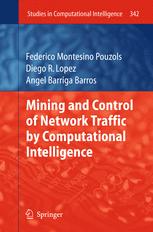

Most ebook files are in PDF format, so you can easily read them using various software such as Foxit Reader or directly on the Google Chrome browser.
Some ebook files are released by publishers in other formats such as .awz, .mobi, .epub, .fb2, etc. You may need to install specific software to read these formats on mobile/PC, such as Calibre.
Please read the tutorial at this link: https://ebookbell.com/faq
We offer FREE conversion to the popular formats you request; however, this may take some time. Therefore, right after payment, please email us, and we will try to provide the service as quickly as possible.
For some exceptional file formats or broken links (if any), please refrain from opening any disputes. Instead, email us first, and we will try to assist within a maximum of 6 hours.
EbookBell Team

0.0
0 reviewsAs other complex systems in social and natural sciences as well as in
engineering, the Internet is hard to understand from a technical point
of view. Packet switched networks defy analytical modeling. The
Internet is an outstanding and challenging case because of its fast
development, unparalleled heterogeneity and the inherent lack of
measurement and monitoring mechanisms in its core conception.
This monograph deals with applications of computational intelligence
methods, with an emphasis on fuzzy techniques, to a number of current issues in measurement, analysis and control of traffic in the
Internet. First, the core building blocks of Internet Science and
other related networking aspects are introduced. Then, data mining and control problems are addressed. In the first class two issues are
considered: predictive modeling of traffic load as well as
summarization of traffic flow measurements. The second class, control, includes active queue management schemes for Internet routers as well as window based end-to-end rate and congestion control. The practical hardware implementation of some of the fuzzy inference systems proposed here is also addressed. While some theoretical developments are described, we favor extensive evaluation of models using real-world data by simulation and experiments.